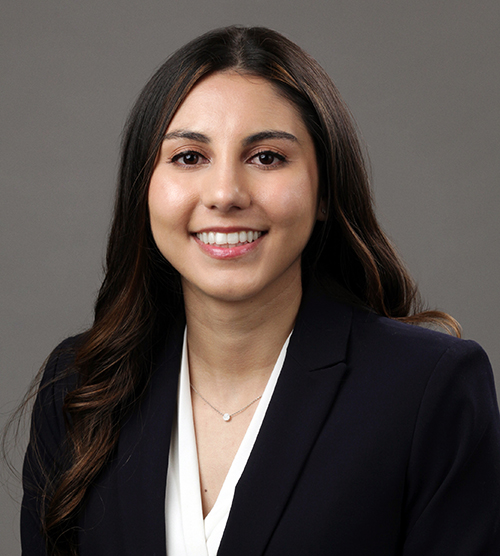Diversity, equity, and inclusion are three words that, rightfully, get bandied around more and more frequently. The Society of Hospital Medicine does more than bandy the words around. In support of its mission and commitment to enhancing diversity in the hospitalist workforce and eliminating health disparities for hospitalized patients across the country, SHM bestowed its inaugural Hospital Medicine Diversity, Equity, and Inclusion scholarship for students this year.

Andrea Martinez
Thanks to a fund made possible by its Keystone Sponsor, Vituity, the $25,000 scholarship was for eligible third-year medical students underrepresented in medicine who demonstrated an interest in a career in hospital medicine and a commitment to practicing in an underserved community.
Andrea Martinez checked all those boxes and then some.
Born and raised in Caracas, Venezuela, Ms. Martinez moved to Miami when she was 15. She completed high school there and earned a biomedical engineering degree from the Georgia Institute of Technology in Atlanta.
As a medical student at Emory University School of Medicine in Atlanta, Ms. Martinez developed a passion for hospital medicine. “Hospital medicine gives me the ability to be exposed to every organ system, be knowledgeable about all of them, know how to treat the patient as a whole rather than by parts,” she said. “It also allows me to get to know patients, build relationships with them, and hear their life stories, which has done nothing but humble me and increase my appreciation for all of my patients.”
She also realized, during her rotations, there’s little diversity among physicians compared to the populations they serve. “All I could imagine was my loved ones trying to get medical care and not being understood because of language and culture barriers,” she said. “The more exposure I get, the more commonplace I realize this is. I’ve had patients refuse to speak to the team unless I’m present just because I provide that familiarity and comfort with my language and background.”
Ms. Martinez said a more equitable representation would help patients feel more comfortable and willing to seek medical care when they need to, instead of being afraid of the physicians and medical system. Representation is also vitally important for the next generation. “When I moved to America, I never saw any physicians who looked or spoke like me, and it really made me doubt my ability to become a physician, as well as fear if and how the medical community would accept me,” she said. “Representation is extremely important. It can show the next generation that it’s possible, and they shouldn’t fear following their passions and dreams.”
Her passion and awareness led Ms. Martinez to cofound the Latino Medical Student Association (LMSA) Pipeline, a joint effort with other LMSA officials to try to unite the LMSA Chapter in Georgia and expand its ability to reach and help the Latino population. The Pipeline “allows us to reach Latino students from high school to college, expose them to health care careers, and provide mentorship and guidance,” she said.
The Emory LMSA chapter offers a community for Latino students, or any student interested in the culture and community. Ms. Martinez serves as president. “Its goal is to represent, support, educate, and unify medical Latino professionals,” she said. “We’ve developed programs to go out into Latino communities and provide health care, mentorship and connections to faculty for lower classmen, and increase awareness of our culture in the medical school.”
Ms. Martinez also volunteered in the COVID-19 Latino Equity Initiative Vaccination Campaign; a program established by the Latino faculty. As a volunteer, she helped administer COVID-19 vaccinations across the Latino community.
Juggling medical school, LMSA, and other passions takes commitment and determination—two things Ms. Martinez has in abundance. “Medical school is definitely extremely time-consuming, but I’ve been able to schedule and prioritize the activities I care about,” she said. “I once heard a talk that really resonated with me. It mentioned that life is all about juggling balls, but the key to life is to determine which balls are made of glass and which balls are made of plastic, meaning, which balls would break if you let them drop versus which balls will just bounce and have no damage if they fall. I’ve made it a point to determine which of the aspects and activities in my life are made of glass and allot more time on those, and one of those is my commitment to the Latino community.”
There’s no doubt SHM, hospital medicine, and the Latino community will be well-served by Ms. Martinez in the coming years. But what’s next on her agenda? “In five years, I hope to be done with my residency, and I see myself as an attending, working in a large urban hospital in a city with a diverse population,” she said. “I hope to be working with underrepresented minorities and continuing to work with the Latino community in any way I can.”